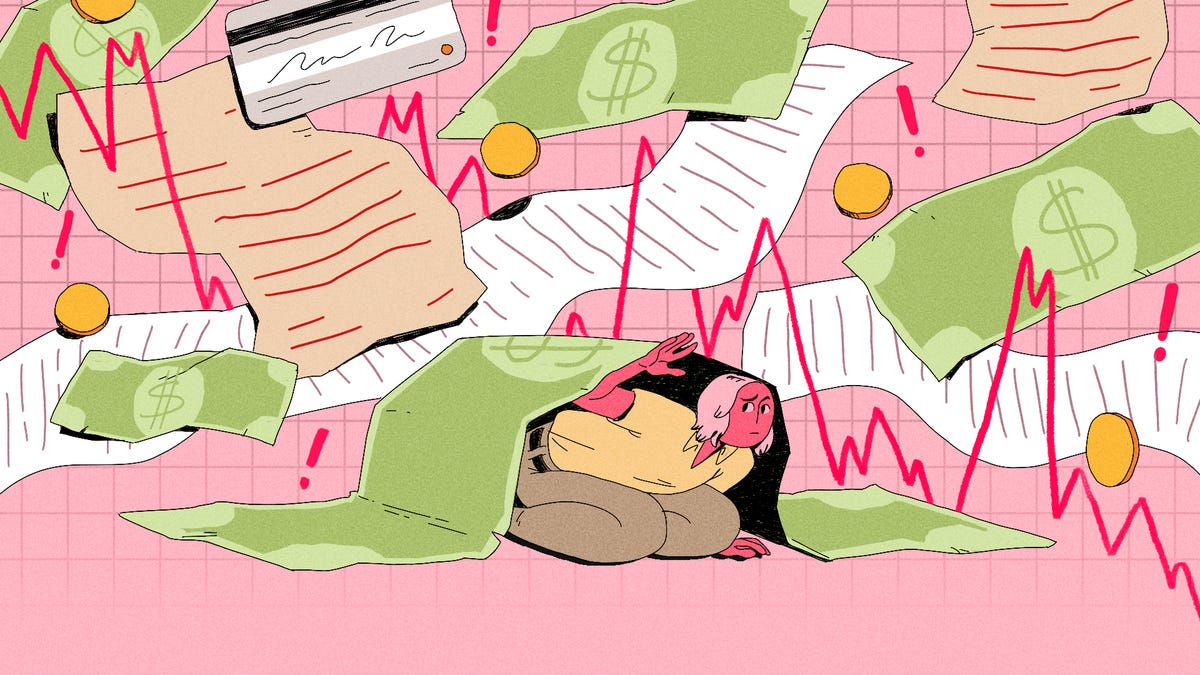How to Stop Being a Financial Procrastinator

Do you constantly put off everyday financial tasks like tracking expenses, paying bills, and filing taxes? Does even checking your bank account balance make you afraid? If so, you may be a financial procrastinator.
Of course, no one likes paying bills. But the costs of financial delay can really add up. Missed payments result in fees, interest charges, and damage to your credit rating. Failure to save and invest early could mean missing out on years of potential compounding growth . Financial procrastination can prevent you from quickly identifying and addressing problems such as fraud. Here are some tips for identifying and eliminating financial procrastination in your life so you can regain a sense of control over your finances.
Are you a financial procrastinator?
Take an honest look at your financial habits. Do you avoid checking your bank account, opening accounts, or paying taxes until the last minute? Do you put off making difficult financial decisions? If yes, think about why you put things off until later. Your relationship with finances runs deep: it is never easy to be “good” or “bad” with money. Worrying about money, thinking about scarcity, feeling overwhelmed with financial tasks, or simply not feeling confident in your money management skills can all lead to avoidance tactics.
In short, when we live in a state of anxiety, we make worse financial decisions. Putting off tasks can result in late fees, interest charges, and other unnecessary expenses. This can prevent you from addressing problems early on when they might be easier to resolve. And perhaps worst of all, you may feel like you have no hope for a more stable financial future. If any or all of this sounds like you, think about what steps you can take to directly break your bad financial habits.
How to overcome financial procrastination
Start small to gain momentum
Tackle just one or two small financial tasks you’ve been putting off. Develop the habit of taking immediate action when completing manageable tasks. Harassing yourself over your money habits can backfire in the form of making decisions based on fear. It can help you zoom out and highlight the strengths in your personal finances so you can have confidence that you can continue to make smarter financial decisions in the future. Small victories add up, and you may find that your finances aren’t as bad as you think .
Make a plan and get organized
Break down big goals into specific, planned steps. Saving for a few hundred student loans a month will be easier than worrying about paying off thousands of debts. To make your goals more actionable, look into budgeting apps or other tools that automate and remind you of key tasks and deadlines.
When it comes to getting out of debt, you don’t want to live in fear and be left in the dark. Here’s our guide to getting organized enough to pay off your debt .
To create a new budget, a popular option is the 50/20/30 method . But as I always say, the best budget is the one that works for you. Here’s our guide to getting started with budgeting.
Start fixing your relationship with money
Budgeting is only a superficial decision; Sticking to a budget becomes very difficult if you ignore the emotional basis of your financial problems. At the end of the day, we all have a money story, and it’s never as simple as ” I’m bad with money .” To learn more, check out these steps to start healing your relationship with money.
Seek support if necessary
If anxiety or a lack of knowledge is preventing you from making progress, consider enlisting the help of a financial advisor, accountant, or friend who knows about money. You might even consider finding a financial therapist . Financial therapy combines financial counseling with psychoanalysis, giving you the opportunity to remove emotional or behavioral barriers to your financial well-being. If you decide to pursue financial therapy, be sure to approach the process with an open mind. All types of therapy require vulnerability and trust, and financial therapy is no exception.
Be patient with yourself
Your approach to money is the key to getting out of debt and creating wealth. However, changing old habits takes time. If you make a mistake, get back on track the next day. Over time, new habits will form. The key is to start taking small actions on a regular basis to build financial confidence and momentum so you can continue to make better financial decisions for yourself.